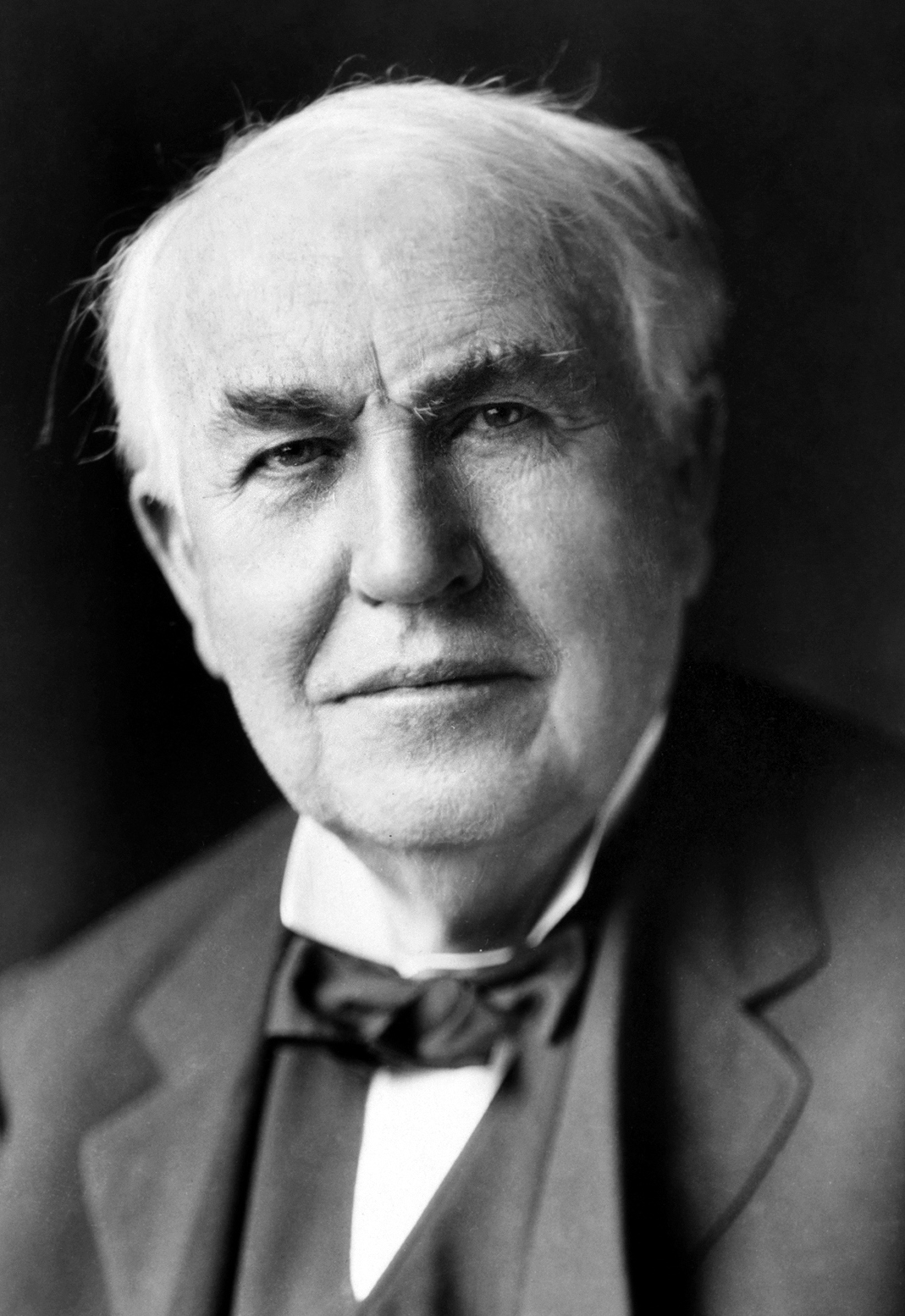“Genius is one percent inspiration, ninety-nine percent perspiration.”
Spoken statement (c. 1903); published in Harper's Monthly (September 1932).
Variants:
None of my inventions came by accident. I see a worthwhile need to be met and I make trial after trial until it comes. What it boils down to is one per cent inspiration and ninety-nine percent perspiration.
Statement in a press conference (1929), as quoted in Uncommon Friends: Life with Thomas Edison, Henry Ford, Harvey Firestone, Alexis Carrel & Charles Lindbergh (1987) by James D. Newton, p. 24.
Variant forms without early citation: "Genius is one percent inspiration and ninety-nine percent perspiration. Accordingly, a 'genius' is often merely a talented person who has done all of his or her homework."
"Genius: one percent inspiration and 99 percent perspiration."
1900s
Variant: Genius is one per cent inspiration and ninety nine perspiration.
